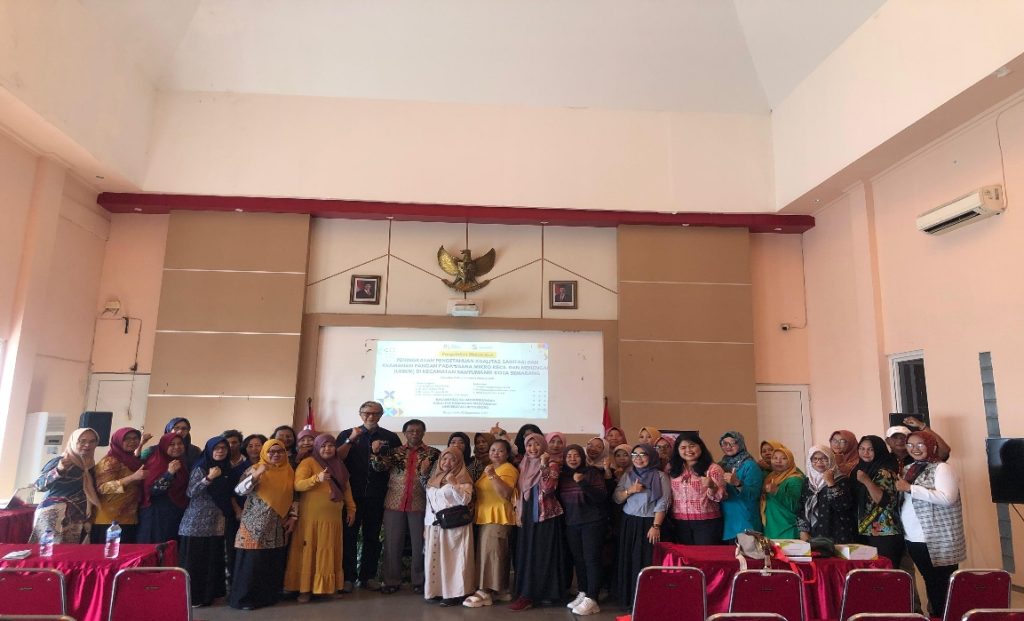In order to achieve international recognition, the Faculty of Public Health, Universitas Diponegoro (FPH UNDIP) held a Sustainability Program, in the form of international service. The activity was attended by Prof. Ts Dr. Shamsul Bahari Shamsudin from University Malaysia Sabah (UMS). The activity was a collaboration with Prof. Dr. Ir. Mursid from FPH UNDIP. This activity is themed Food Security for the Community. The participants of the activity were 52 entrepreneurs of Micro, Small and Medium Enterprises (UMKM) of Banyumanik District. The main substance of the Malaysian speaker, Prof. Shamsul Bahari, is the Prophet’s Word, in a hadith narrated by Muslim, “Close the food containers, close the lids of the beverage containers, close the doors and turn off the lamps, because the devil cannot open the drinking container, open the door and open the food container (which has been closed). If you have no cover except a stick placed on it and say the name of Allah, then do it. Indeed, rats can damage the homeowners by burning their houses”. Also conveying the characteristics of healthy food, ” healthy food (safe) results from a healthy environment (clean/hygiene)” Characteristics of healthy food: Clean (hygiene) and safe to eat; Balanced Diet; Fresh and quality; Less salt, sugar and fat; Processed with healthy methods; Rich in fiber; Free of added flavorings.”
While Prof. Dr. Ir. Mursid, conveyed various substances that cause the food produced to be unhealthy. The principle of hygiene and sanitation is a series of measures to control factors that can cause food contamination, so that food becomes safe to consume. The six main principles in food hygiene include: selection of quality raw materials, safe storage of foodstuffs, hygienic food processing, proper storage of finished food, clean food transportation, and healthy food delivery.
The principles of personal hygiene sanitation focus on maintaining personal hygiene (such as washing hands, keeping hair and nails clean) to prevent disease and improve well-being, as well as implementing hygienic behaviors (e.g. wearing clean work clothes, not wearing flashy jewelry, and not working when sick) to maintain personal hygiene in the context of the environment, especially in the field of food. The risks of unhygienic food utensils are: the risk of food poisoning, foodborne illness (such as diarrhea or vomiting), and cross-contamination by bacteria or harmful chemicals.
This happens because dirty equipment can become a breeding ground for disease-causing microorganisms that then move to food and the human body.
The service activity was closed by emphasizing that the knowledge provided could be applied to daily activities in producing food products that will be consumed by the community.
